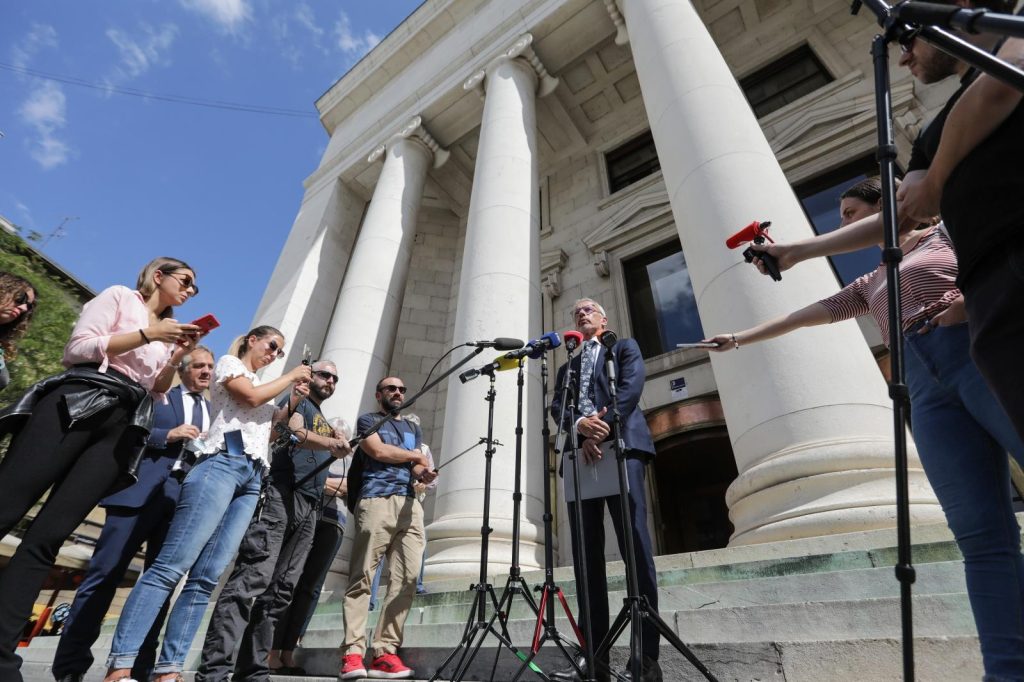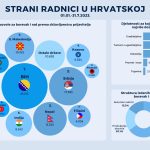Addressing a news conference on Thursday, Vujčić recalled the HNB’s proposal for amendment of the Consumer Credit Act in the segment concerning authorized and tacit overdrafts. The HNB will agree to those changes with the government and it will also meet with bank representatives, Vujčić said, noting that the final form of the bill had still not been defined.
Vujčić said that the HNB completed a market analysis in Q1 2021 and that its findings, together with legal proposals, were presented to the Finance Ministry in April.
The analysis of the overdraft market was launched in 2020, showing that a large portion of overdrafts had changed from authorized to tacit overdrafts.
Vujčić stressed that the Consumer Credit Act, adopted much earlier, was designed to make tacit overdrafts an exception, but that when it was established that most overdrafts had turned into tacit overdrafts, a decision was made to impose the same regulation mechanism for those overdrafts as for authorized overdrafts.
In the case of authorized overdrafts, the effective interest rate is capped and banks have the obligation, when opting to cancel that service, to offer their client the possibility of repaying their debt in 12 installments.
“This legal proposal is an attempt to set a maximum effective interest rate (on tacit overdrafts) and make banks offer repayment in installments if their clients get into problems. Banks can do that now but they are not obliged to. In the future, they will have to do just that,” said Vujčić.
He noted that the legal proposal was not about abolishing tacit overdrafts.
New agreements on tacit overdrafts will thus have to be limited to 90 days and HRK 1,500, and Vujčić said that the adoption of the new law could result in a drop in bank revenue of HRK 100 million annually, noting that that would depend on the final version of the bill, however, the estimate was not expected to change significantly.
Depending on the type of loan, wage, and overdraft amount, consumers would be able to save between HRK 150 and 450 a year.
Interest rates should reflect product-related risks
Vujčić also said that of some 1,000 consumer complaints the HNB received in 2020, seven referred to tacit overdrafts, and when asked if the HNB could have reacted sooner, he said that this was not a problem previously as the effective interest rate on tacit overdrafts was not high.
The average effective interest rate for overdrafts grew in 2020 because banks raised their fees, not interest rates. “Before that, we did not have any reason to intervene, and now we do,” he said.
Vujčić said that the matter was a very complex and sensitive one and that putting a cap on the interest rate was not, as believed by some, necessarily the best solution because it could exclude a large number of citizens from the market.
He noted that interest rates should reflect product-related risks and that in principle tacit overdrafts indeed entailed the most risk as there was no collateral and the client’s creditworthiness was not checked, hence the high-interest rate.
He added that interest rates on tacit overdrafts in Croatia were lower on average than in EU countries that had not introduced the euro and higher than in those that were part of the euro area, but that that was not the case with other financial products.
Speaking of inflation, Vujčić said that there was no risk of very high inflation rates.
“However, in the euro area the inflation rate is slightly higher than forecast but we are still between 2% and 3%, which should not be worrying,” he said.
For more on politics, follow TCN’s dedicated page.








